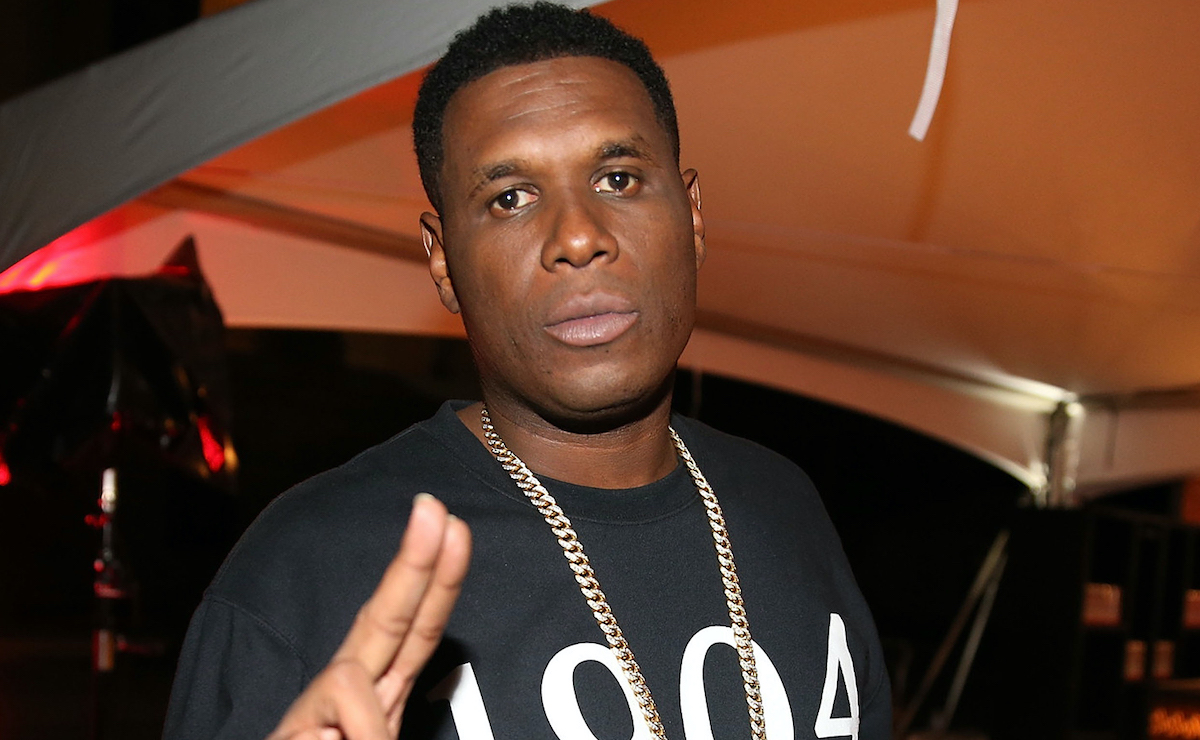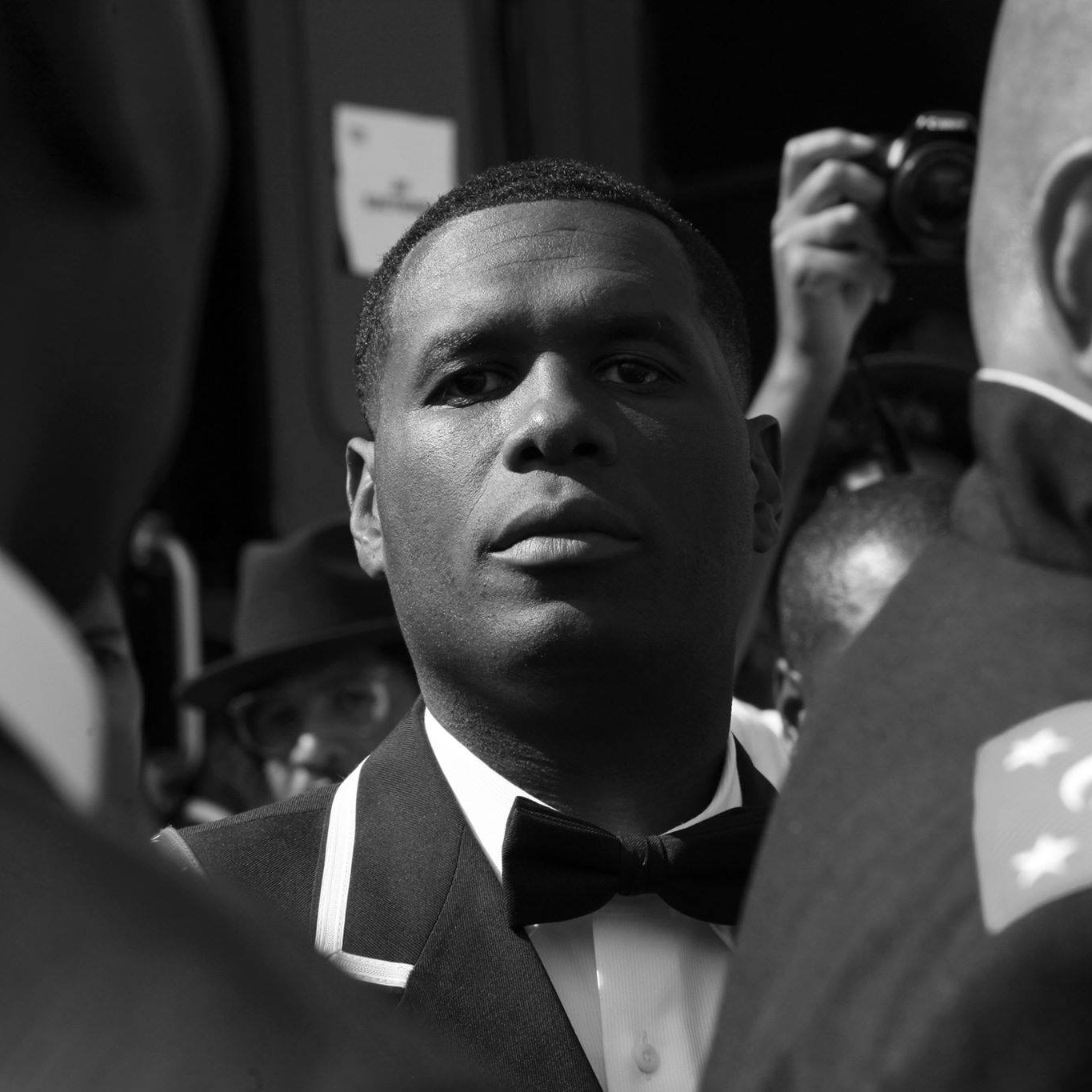
Let’s revisit a modern classic. Two years ago, Jay Electronica reprised his cryptic—yet notoriously elusive—dictation with a rare gift to the hip-hop world. Tidal mysteriously released the album on Friday the 13th with Electronica claiming it took “40 days and 40 nights,” furthering the notion of a messianic-like status that Electronica has developed for himself within the industry.
A Written Testimony begins with narration from minister Louis Farrakhan of the Nation of Islam, a black nationalist and Islamic movement with an intensely controversial legacy, setting the tone of his own Islamic faith as the cardinal theme of this laconic—yet markedly overdue—freshman album.
In a typically arcane fashion, Electronica isn’t heard on the album until two minutes into “Ghost Of Soulja Slim,” allowing his partner throughout (JAY-Z) this entire Islamic-themed depository, to begin the lyrical mastery with the commanding line, “Next time they bring up the gods, you gon’ respect us.”
The album speaks for itself with silky, chimerical instrumentals and rhythmic flow from both Jays. This blast to the recent past will hone in on the social and political themes that run rife throughout this elliptical yet succinct composition.
On “Ghost Of Soulja Slim,” the project’s first record, Electronica and Jay leave no time to waste in voicing their opinions on past and contemporary racial divides in the U.S., rightfully so, we would argue.
Soulja Slim, an accomplished rapper from the same New Orleans projects as Electronica, was assassinated in 2003, and Hov accredits this painful loss to an “era of police stretcher, no cameras catch it.” The double entendre highlights an epoch of police brutality that was not publicised and subsequently left African-American murders unsolved, whilst setting contrast from the current generation of social media, in which these crimes aren’t so easy to cover up.
Hov doesn’t ease up, “Here’s some jury, no civilization is conquered from the outside until it destroys itself from within,” a politically astute lyric in itself but one contextualised by its delivery. “here’s some jury” alludes to the judgement he’s received for working with the NFL, whilst offering a better judgement of the importance of this relationship. One can take from the verse, that Jay intends to remind the African-American listener of how great Roman and Egyptian empires fell and thus, to have faith in his intentions to change a system from the inside out. Another possible interpretation, Hov could be referring to the development of the inner realm (the self) as a precursor for the progression of the outer realm (society). Possibly encouraging African Americans – and black communities beyond – to look within themselves and question the negative impacts of oppression and social constructions on the consciousness, to break down the influence of the oppressor on self-image and to look for strength and solution. Jay appears hopeful and reflective in this possible allegory, highlighting the importance of the individual in altering a society for the better.
Young Hov doesn’t stop at the domestic complexities of race relations or lack thereof, but goes the full length in offering an honest assessment of how to address internally, the predicament black men and women may find themselves in worldwide. Electronica hones in on the same racial tensions with the line, “Crushing the oyibo that try to bring wahala,” referring to, in Yoruba, the white man being synonymous with the trouble that was—and still is—caused for the African-American population and for Black communities beyond the United States.

A powerful message, encapsulated in the introduction by Farrakhan calling out those too afraid to stand up to the white man during America’s racial tensions in the 1960’s.
Louis Farrakhan, however, is an extremely controversial figure, and despite his dedication to the empowerment of African-Americans, had a questionable impact on significant historical events, such as the death of Malcolm X. Recruited to Nation of Islam by Malcolm himself, Farrakhan amongst others, became critical of the late Black rights activist, most prominently for his desire to build relations with civil rights groups and his criticism of the Nation of Islam’s spiritual leader Elijah Muhammad.
However, it was Farrakhan’s words, "the die is set, and Malcolm shall not escape, especially after such evil foolish talk about his benefactor, Elijah Muhammad. Such a man as Malcolm is worthy of death," that some historians believe to have influenced the death of a figure revered by his contemporaries and by future generations. Farrakhan acknowledged the influence he may have had when he addressed the claims in a broadcasted interview in 2000, confirming that he “helped created the atmosphere” that allowed for the assassination of Malcolm X.
Thus, one asks themselves of the moral confusion that arises when hearing the powerful yet controversial words of the Nation of Islam minister on a hip-hop soon-to-be classic. Yet, after admitting his guilt in the inciting of Malcolm X’s assassination, the departed activist’s oldest daughter Attallah Shabazz thanked Farrakhan for his acknowledgment and wished him “peace.” Regardless of the controversy of Louis Farrakhan, his words appear to be at the nexus of Electronica’s creation, posing as quite the statement of Black solidarity and the importance of Islam to the Louisiana rhymer.
What better way to address the Islamic theme of the album than by focusing on the song “A.P.I.D.T.A,” an abbreviation of the phrase “All Praise is Due To Allah.” During a social media premiere of the album, Electronica noted that the song was written the day of legendary basketballer Kobe Bryant’s death and thus, the theme of this almost canticle-like-melody is of appreciation for life itself.
Jay voices that he bows “with those who bow to the creator and pray homage.” This is a reassembled iteration of the Qur'an verse 2:34. “Establish prayer, pay alms-tax, and bow down with those who bow down.” Electronica is making clear that he is united with those who pray to Allah and those who contribute some of their earnings to their community as required within the five pillars of Islam. Combined with consistent appearances of Nation of Islam leader Farrakhan, the album spreads a positive Islamic message amongst the delicate topic of death, to remember love and community.
Juxtaposed to this graceful Islamic message, are the calls of anti-Semitism that have been heard loudly since the album’s arrival. Jay spits, “And I bet you a Rothschild I get a bang for my dollar, The synagogue of Satan want me to hang by my collar.” Alone, the first sentence may refer to his affair with the wealthy Kate Rothschild. However, with both lines together, it is possible that he may be referring to the widely known conspiracy theory of the Rothschild family, who are accused by conspiracy debaters to have a history of inciting war for financial gain.
This subjectivity makes the denouncing of Electronica as an anti-Semite difficult to confirm. Moreover, he links his alleging of Satan and Judaism as one in “Fruits of the Spirit” by delivering the bar, “Satan struck Palestine with another mortar,” suggesting a cross-track analogy condemning Israel—a predominantly Jewish state—for the bombing of Palestine. One could argue that this political message is a confused mixture of anti-Zionism and Anti-Semitism, used to condemn the wrongful military actions of Israel. However, with both having overlapping themes, Jay Electronica makes clear his stance on Israel as a state; but in doing so, threatens to castigate an entire ethnoreligious group within several verses. Such a pithy condemnation is dangerous and leaves sour notes amongst an otherwise masterful artwork
Jay Electronica has created a melting pot of mythical, poetry-like verses; significant racial discussion, Islamic teachings, Middle Eastern and African-American political inferences, and a less favourable dose of dubious indictments that could be intended to paint the Jewish community in a negative light. Nevertheless, A Written Testimony is a social and political phenomena which will be discussed for years to come.■













Comments